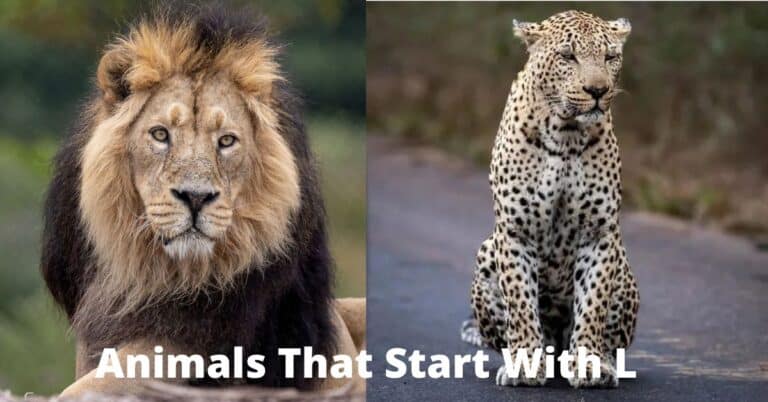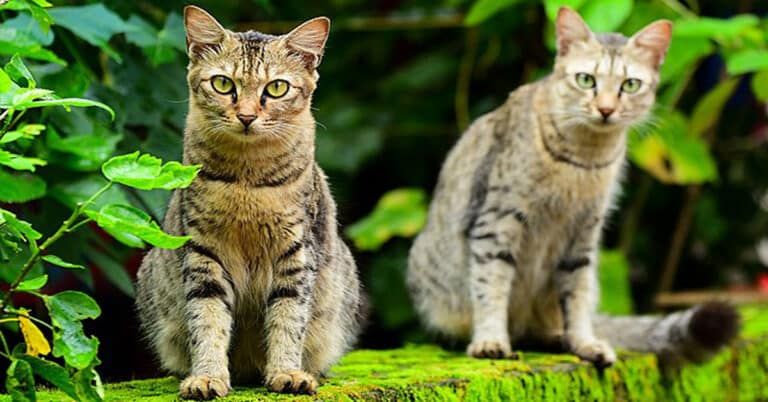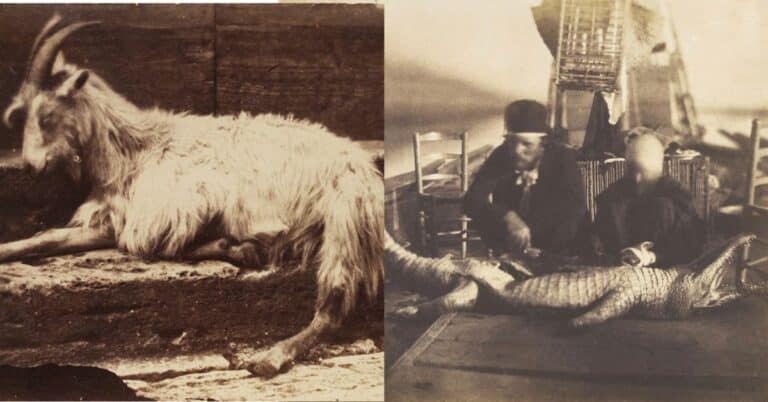5 Smartest Animals in the World – A Deep Dive into Animal Intelligence
Have you ever wondered how smart the animals around us are? This is probably one of those human questions that have been bothering people for centuries.
Despite many animals on Earth displaying signs of high intelligence, they cannot be measured using an intelligence quotient. Instead, we can observe evidence based on self-awareness, problem-solving, emotional capacity, and brain size, among other metrics.
And yet, which are the smartest animals in the world? What specific behavioral characteristics do they exhibit, or how can we measure their level of intelligence?
Let’s explore the 5 smartest animals in the world. Chances are that after reading this article, you will never perceive nature the same way again!
5 Smartest Animals in the World
1. Orangutans

When we are talking about the smartest animals in the world, the first mammal that comes to mind is the orangutan. Believe it or not, orangutans share over 97% of their DNA with humans. Therefore, it’s not surprising that these mammals are considered to be some of the smartest animals in the world.
Much like chimpanzees, orangutans can use tools, learn sign language, and have complex social structures that involve rituals. What truly sets them apart is their ability to understand the reasoning behind their actions. For example, when an orangutan learned tool usage and shelter-building in captivity, it later demonstrated its skills in the wild by improvising tools and constructing similar shelters to protect itself from rain.
Orangutans can be trained to use tools like hammers and nails, and some orangutans can even figure out how to use a hose for siphoning liquids. Sadly, these incredible creatures are critically endangered due to habitat loss in their native Indonesia.
2. Bottlenose Dolphin

Many people consider the Bottlenose Dolphin one of the smartest animals in the world, even though it’s ranked second on this list. Their level of intelligence varies among the dolphin species, but in this article, we’ll focus on the bottlenose dolphin. These dolphins have the largest brains among their relatives and can move their heads in a human-like nodding motion.
Bottlenose dolphins are trainable and can recognize themselves in mirrors, notice unfamiliar marks on their bodies, and even understand images on television. They have their own language, which they switch to a common one when communicating with other dolphin species.
But wait for the main part – Bottlenose dolphins possess remarkable memories, like recalling sounds from a mate after a separation of more than 20 years.
3. Octopus

The octopus deservedly takes the place of one of the smartest animals in the world. Unlike most invertebrates, they possess impressive intelligence. Octopuses have a main brain, like us, which serves as their central nervous system (CNS). But what makes them truly unique is that they have a mini-brain in each of their 8 tentacles. You may never have imagined a living organism with 9 brains, but life is full of such surprises!
These smaller brains allow each tentacle to work independently, and this remarkable adaptation enables octopuses to move, touch, and even taste things separately with each arm. They use this distributed intelligence in fascinating ways. In the wild, octopuses can mimic rocks. As a result, they can move stealthily by matching their speed with the water and creating the illusion of standing still. Interestingly, this helps them evade predators effectively.
In captivity, octopuses have demonstrated advanced problem-solving skills. They can plan and execute multi-step escapes, even damaging objects outside their tanks intentionally. They’ve been observed throwing rocks at glass and opening jars with screw-on lids.
Another interesting fact that researchers have found about these smartest animals in the world is that they excel at solving puzzles, using tools, and navigating challenging situations by relying on their short-term and long-term memory. This aids them in finding their way back to their dens, even after extended journeys in their habitat.
4. Elephants

Elephants are often known for their exceptional memory and high intelligence. They have complex social structures and exhibit unique behaviors, such as participating in funeral-like rituals for deceased family members and mourning their loss. Elephants also display the ability to use tools and self-medicate by consuming specific plants to heal themselves or induce labor.
In addition to being one of the smartest animals in the world, elephants are also among the rare animals that engage in acts of altruism. They can make sacrifices, even risking their safety, to protect their herd or offspring. Sounds emotionally exciting, right?
5. Crows

You’ll probably agree that this is only a superstition, yet in certain cultures, crowing is considered unfavorable. Whether you feel superstitious, you should know that crows are remarkably intelligent birds that take place as some of the smartest animals in the world, often compared to the intelligence of a 7-year-old human. Their problem-solving abilities are attributed to a large number of brain cells dedicated to processing information.
Scientists revealed that crows have densely packed neurons (around 200 to 300 million per hemisphere), facilitating efficient communication between brain cells. Crow intelligence is comparable to some monkeys and may even approach that of great apes like gorillas.
Crows demonstrate their intelligence through tool usage, such as the New Caledonian crows on a South Pacific island that craft twigs into hooks to extract grubs from decaying wood. Additionally, crows can be taught to mimic words, similar to the way parrots are trained. Young crows tend to pick up words more quickly than adults, but even older crows can learn this skill.
5 Key Ways Animals Showcase Their Intelligence
Experts in animal behavior often subject various animal species to tests to assess their intelligence. For instance, rats are tested in mazes and obstacle courses with changing patterns to evaluate their memory and problem-solving skills. This tool modification is a remarkable display of intelligence, which demonstrates that animals can plan.
1. Consciousness
Consciousness is the ability to know yourself, your thoughts, memories, and feelings. Scientists used to think only people had it, but thanks to recent discoveries, now we know that a specific number of the smartest animals in the world share this awareness. When animals learn and pay attention, they pick out important information or things from lots of stuff around them.
For instance, the mirror test checks for self-consciousness by marking an animal’s forehead and placing it in front of a mirror. If the animal tries to remove the mark upon seeing its reflection, it shows self-consciousness.
Interestingly, smaller animals with faster metabolisms tend to take in more information than larger animals would. In other words, smaller animals comprehend the world in slow motion, compared to how we see it.
2. Memory
The smartest animals in the world use memory to remember faces, avoid potential threats, and make smarter decisions about their future.
Generally, most human children can count to 10 by around the age of four. Other animals, however, have also displayed a basic ability to work with numbers. In experiments involving food rewards, baby chicks, for instance, have effectively demonstrated comprehension of basic mathematics by calculating things like “three treats plus one treat equals four treats.”
3. Communication Skills
It may sound unusual, but language is not unique to humans. Many animals have special means of expressing themselves, whether it be through pulses and clicks used by dolphins, shrieks from giant apes, or non-verbal gestures frequently found in dogs and pigs.
Bottlenose dolphins have shown basic language comprehension by distinguishing word orders in commands from trainers and demonstrating self-recognition in mirror tests. Other primates can also understand and use human languages. One famous example is Koko, a gorilla who successfully learned sign language, which she uses to communicate with her caregivers.
4. Reasoning and Problem-solving
When faced with difficult situations, the majority of the smartest animals in the world use reasoning and problem-solving to get the solution. Crows are some of the smartest animals that can be problem solvers. A crow dropped solid things into the water when researchers offered her food that was submerged in water that was too deep for her to reach. This raised the water level, bringing food closer to the surface for her to grab.
Often defined simply as “wisdom,” this attribute in animals refers to the ability to behave with judgment. The culturally-minded whales, dolphins, primates, and corvina are some particularly sapient animals.
5. Spatial Cognition
The ability to understand where we are about the world around us is a fundamental building block for humans’ physical and mental experiences and an essential part of survival for every creature in the animal kingdom.
Understanding that other people have views, motivations, and mental states that are distinct from our own is crucial for humans to have successful social interactions. Whether or not animals possess this attribute is still a topic of scientific debate, though evidence that they do seems to be growing.
Final Thoughts
In conclusion, there are numerous approaches for evaluating the intelligence of the smartest animals in the world. However, it’s important to remember that no single test can completely define an animal’s intelligence. This is true regardless of whether scientists utilize games, puzzles, and tests like mazes or treat-hiding challenges to evaluate cognitive abilities.
This adds even more mystery to the world of the smartest animals… Who knows? Perhaps shortly, their level of consciousness will expand to greater and more profound dimensions. Sounds exciting, right? We couldn’t agree more!

Nato is a content writer and researcher with a background in psychology who’s eager to explore the wonders of nature. As a travel enthusiast and animal lover, she hopes to inspire others to discover and cherish the beauty and importance of the natural world.







